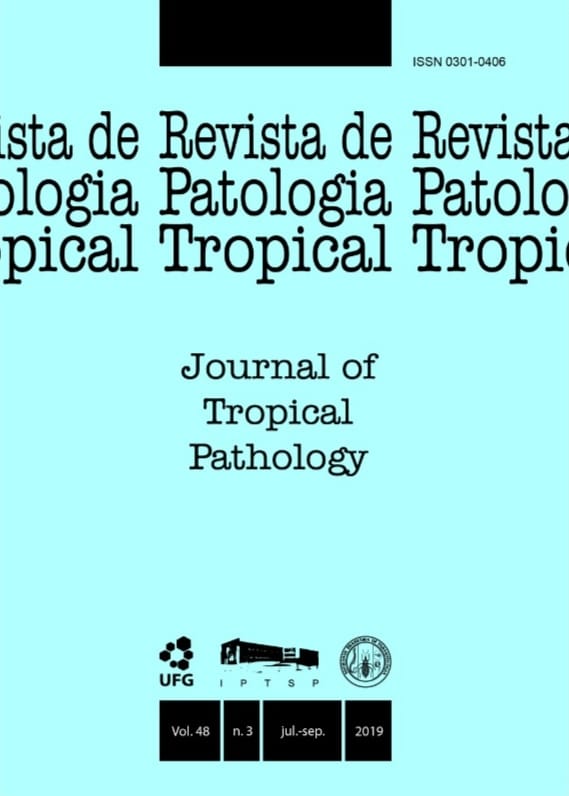Hyptis brevipes AND Paullinia pinnata EXTRACTS AND THEIR FRACTIONS PRESENTING ACTIVITY AGAINST Mycobacterium abscessus subsp. massiliense
DOI:
https://doi.org/10.5216/rpt.v48i3.58993Resumo
Medicinal plants are of great interest for the discovery of new biomolecules with diversified effects. Over the last decade different outbreaks caused by Mycobacterium abscessus subsp. massiliense have been reported, evidencing it as an important emerging pathogen in underdeveloped countries. This study investigated the antimycobacterial activity of six Brazilian medicinal plant extracts and their fractions. Hyptis brevipes, Tocoyena formosa, Randia armata, Paullinia pinnata, Lafoensia pacari and Anadenanthera colubrina were evaluated against M. a. massiliense. Total extracts from the medicinal plants H. brevipes, T. formosa, P. pinnata and L. pacari presented a minimal bactericidal concentration of 1 mg/mL. After fractioning, the ethanolic fractions from H. brevipes and P. pinnata presented bactericidal activity, and the ethyl acetate fraction from H. brevipes and T. formosa presented antimycobacterial action. The best bactericidal function of all plant fractions was the ethanolic, which contained rutin and rosmarinic acid that were shown to have microbicidal activity.
KEY WORDS: Mycobacterium abscessus; medicinal plants; Brazilian medicinal plants; HPLC
and biodiversity.
Downloads
Downloads
Publicado
Como Citar
Edição
Seção
Licença
The manuscript submission must be accompanied by a letter signed by all authors stating their full name and email address, confirming that the manuscript or part of it has not been published or is under consideration for publication elsewhere, and agreeing to transfer copyright in all media and formats for Journal of Tropical Pathology.

